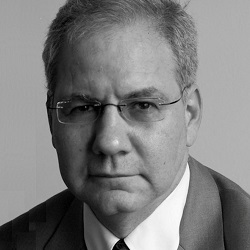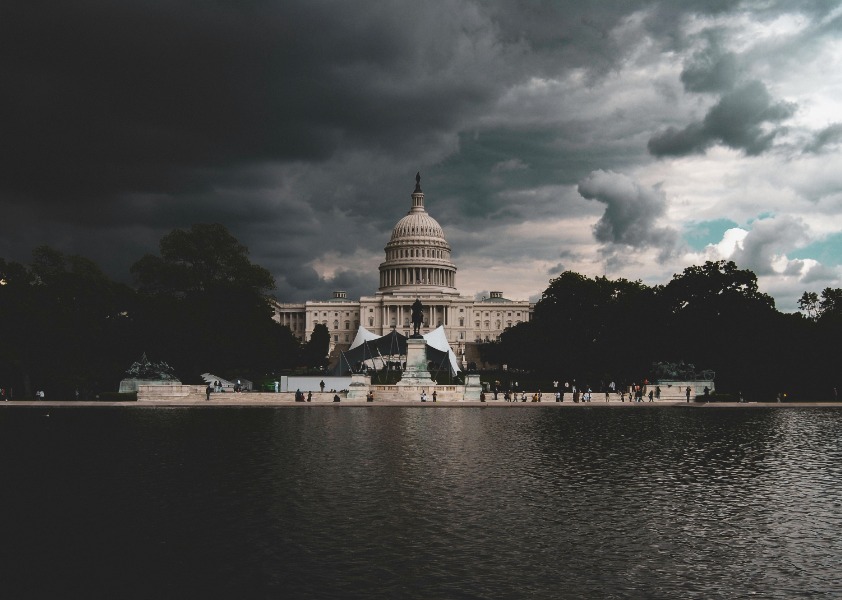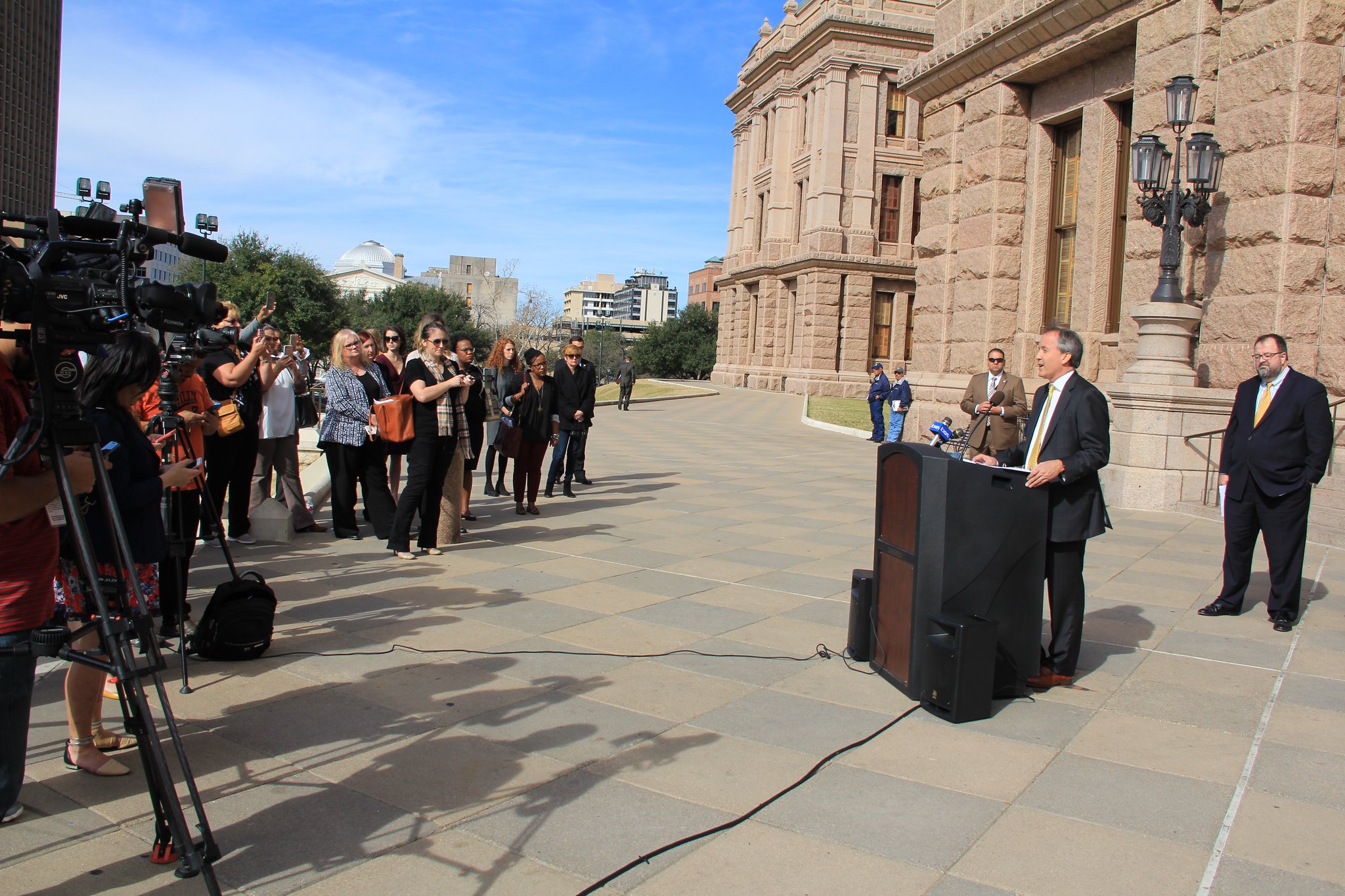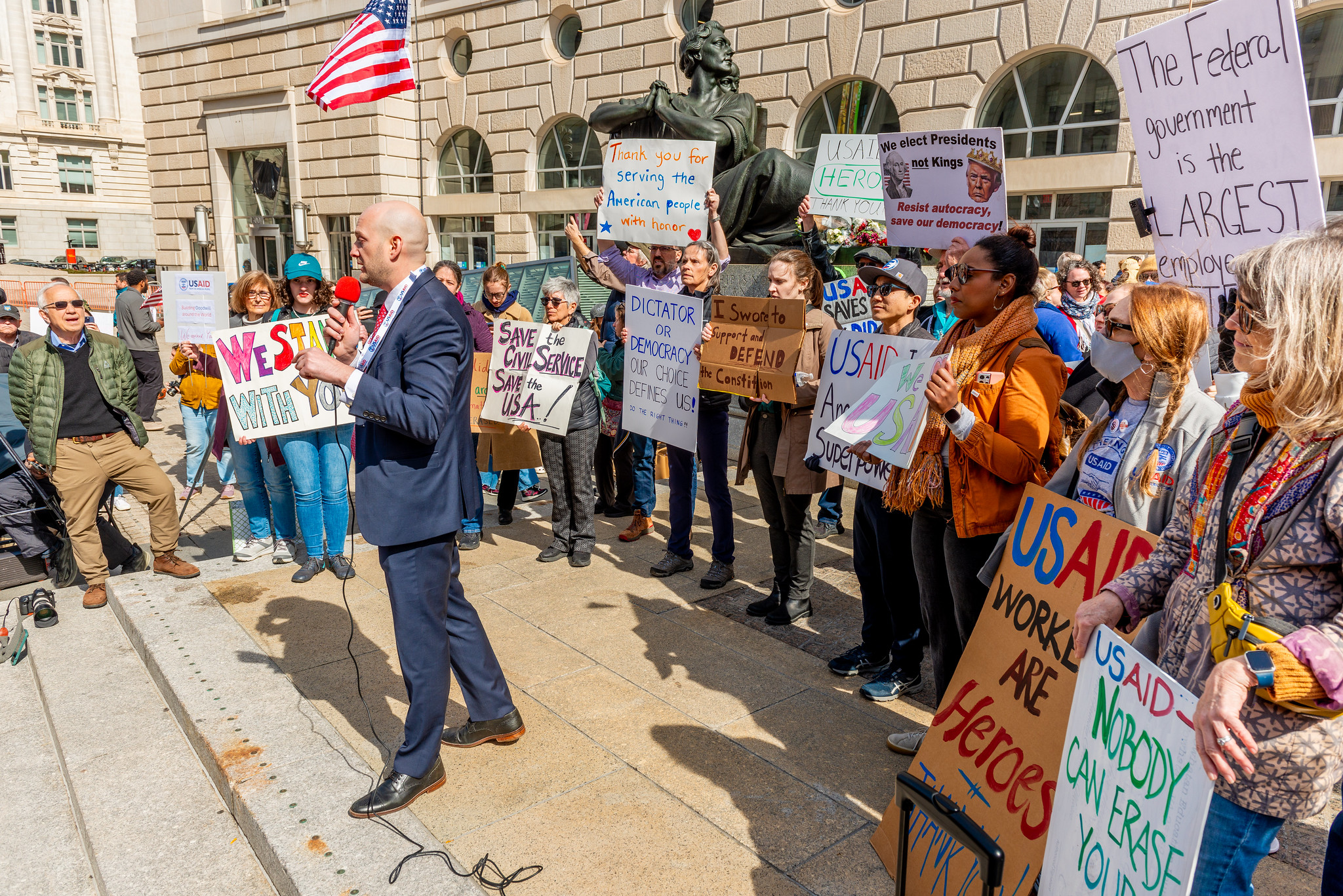Why is Andrew C. McCarthy So Sure That Trump Hasn’t Obstructed Justice?
The Mueller investigation is moving forward. Already Special Counsel Robert Mueller has obtained two guilty pleas and handed up two indictments of mid- and high-level figures from the Trump campaign. President Trump himself appears to be in the crosshairs and the future of his presidency would seem to hang in the balance. As we assess the picture, the most important fact to keep in mind is that we do not know what Mueller knows.
Published by The Lawfare Institute
in Cooperation With

The Mueller investigation is moving forward. Already Special Counsel Robert Mueller has obtained two guilty pleas and handed up two indictments of mid- and high-level figures from the Trump campaign. President Trump himself appears to be in the crosshairs and the future of his presidency would seem to hang in the balance. As we assess the picture, the most important fact to keep in mind is that we do not know what Mueller knows. Only when he completes his investigation and issues a report will we have a fuller—if not full—understanding of what transpired in the 2016 election between Russia and the Trump campaign.
But among both anti-Trump and pro-Trump observers are a number who are quite certain that they already know the truth: that Trump is guilty of the blackest sins or that he is as innocent as mother’s milk. One columnist tending toward the mother’s milk category is Andrew C. McCarthy, who writes about legal and other matters for the conservative publication National Review Online.
McCarthy is no mere columnist and no mere attorney. He is a former federal prosecutor with a wealth of experience working inside the Department of Justice, including as head of the team that prosecuted the blind sheikh Omar Abdel Rahman and eleven others for the bombing of the World Trade Center in 1993 and a subsequent planned terror rampage.
Highly influential in the conservative world, McCarthy writes prolifically, and I often dip into his thought-provoking work. It almost always leaves me inquiring how he arrives at his stark conclusions, which quite frequently—but not always—run in directions opposed to my own intuition that Trump is guilty of blacker-than-black sins. Rather than delve into the entirety of McCarthy’s considerable oeuvre, I thought it useful to take a close look at just a single recent piece I happened upon, which left me wondering about both the correctness of his arguments and his great certainty about them.
In his National Review Online article, “Completely Missing the Point on Lisa Page’s Obama Text,” McCarthy maintains that the narrative that Trump engaged in obstruction of justice is both “cockamamie” and “patently absurd.” Let us lay out McCarthy’s arguments for this vociferously expressed assertion and consider them one by one.
To begin with, McCarthy is on solid ground in summarizing the conventional wisdom regarding which of the president’s actions might elicit obstruction charges from the Mueller probe. He suggests that such a case would revolve around three such actions: Trump pressuring former FBI director James Comey to drop the investigation of Michael Flynn; Trump firing Comey; and Trump threatening to fire Mueller.
This is a fair summary even if additional actions could be added to the mix: for example, Trump’s witness-tampering-like exhortation to Michael Flynn to “stay strong,” at a moment he knew Flynn was under investigation by the FBI but before the former national security advisor had been charged with any offense; and the president’s role aboard Air Force One in drafting a misleading statement regarding the June 9, 2016 campaign meeting with Russians in Trump Tower. By my lights, at least, these five items form a pattern of obstructive behavior. But we can put the incompleteness of McCarthy’s charge sheet aside for the moment, as it has only a tangential bearing on the strength of his primary argument.
McCarthy’s blanket dismissal of the obstruction case hinges on several propositions.
First, McCarthy draws a “critical distinction” between counterintelligence investigations and criminal investigations: “Both kinds of inquiries are called ‘investigations,’” he writes, “just as apples and oranges are both ‘fruits,’ but they are very different things.”
By the intrinsic nature of the president’s authority, McCarthy argues, it is impossible for him to obstruct a counterintelligence investigation: it is “national-security work” that is “conducted for the President” for “the purpose of informing him.” Presidential obstruction of a counterintelligence investigation would amount to obstruction of his own key responsibility—which would be tautological nonsense, akin to an added bonus or killing a corpse.
Second, McCarthy makes the case that a presidential role in staying abreast of, interfering with, or even directly managing a counter-intelligence investigation poses no threat to impartial justice or the rule of law. The aim of such an investigation is “not to prosecute someone who has violated the penal law” and therefore no one has cause to be “worried that political officials, rather than legal principles, control the outcome.”
Third, setting counter-intelligence investigations aside, McCarthy believes that the president can also legitimately interfere with criminal investigations. Indeed, he possesses the “undeniable constitutional authority” to do so, viz. the pardon power. “[P]olitical officials are generally supposed to stay out of [individual cases] because we are a rule-of-law society,” writes McCarthy, and “we want individual cases to be decided strictly by the law, not by political considerations.” But custom and norms rather than law limit the president’s power in this area. “[B]y and large,” McCarthy continues, the president “should not” interfere in criminal cases. If a president chooses otherwise, “he should do so transparently,” employing a legitimate mechanism, such as issuing a pardon or giving an order, under the rubric of prosecutorial discretion, to close a case.
With the table thus set, what does all this mean for the possibility that Trump obstructed justice?
After a discussion (irrelevant for our purposes) of the text messages exchanged between paramour FBI agents Lisa Page and Peter Strzok, McCarthy looks back at how Barack Obama handled the Russia investigation as it unfolded under his watch. Though the investigation involved a supremely sensitive political matter—“the Kremlin’s potential coopting of the Republican presidential candidate”—President Obama was fully within his rights both to stay abreast of the FBI counterintelligence probe and even to guide its direction. Indeed, if Obama chose not to stay informed about Russian meddling in our election, writes McCarthy, “he would have been guilty of an indefensible dereliction of duty.”
By the same token, McCarthy argues, Trump was and is fully within his presidential rights to stay abreast of the Russia investigation and guide its direction. Mueller’s probe was and remains, stresses McCarthy, “principally a counterintelligence investigation” (emphasis added).
Trump can no more obstruct the Russia investigation by taking actions that could conceivably affect it than Obama could obstruct the Russia investigation by being briefed on it and giving the FBI directions on it.
By the same reasoning, Trump was acting fully within his legitimate presidential powers when he took measures that Trump detractors regard as “obstruction episodes.” Thus, even though Trump, in McCarthy’s telling, did not order FBI Director James Comey to drop the investigation of Michael Flynn, “he could have.” The same holds for Trump’s firing of Comey and for any alleged future plans to fire Special Counsel Mueller. Both actions are or would be permissible exercises of presidential power. Once again, explains McCarthy, “the Russia investigation is a counterintelligence investigation. Trump gets to ‘interfere’ in it if he chooses to.”
Things might be different, McCarthy allows, “if the Russia investigation were principally a criminal investigation and Trump were a suspect.” But it is not a criminal investigation, says McCarthy (citing the Justice Department’s order appointing Mueller) and Trump is not a suspect, he says (citing congressional testimony by Comey).
What are we to make of these arguments?
To begin with what might seem a trifle, one wonders what purpose the word “principally” serves when McCarthy writes that the Russia investigation is “principally a counterintelligence investigation.” If the distinction between counterintelligence and criminal is fundamental—“apples and oranges”—shouldn’t the investigation be wholly an apple or an orange, not “principally” one fruit combined with a little bit of the other?
It turns out, on inspection, that the line McCarthy draws between counterintelligence and criminal investigations is not as bright as he would have it. Rather than apples and orange, it might be more useful to think of the two types of investigations as apricots and plums, two fruits that agronomists have succeeded in conjoining into a delicious hybrid called aprium.
McCarthy does not acknowledge it, but the fact is that the order issued by the Department of Justice appointing Mueller as Special Counsel is a specimen of just such an interspecific fruit. Part of the charge it gives to Mueller is plainly the “apricot” of counterintelligence: it asks him to investigate “any links and/or coordination between the Russian government and individuals associated with the campaign of President Donald Trump.”
But the same order also mixes in the “plums” of a criminal probe, giving the Special Counsel authorization not only to look into “any matters that arose or may arise from [that] investigation,” but also “to prosecute federal crimes” (emphasis added) arising from it. Criminal and counterintelligence investigations can be and have been conducted simultaneously by one and the same Special Counsel. Apriums are on Mueller’s menu.
If we burrow a bit deeper into the legal weeds, we should note that the same order appointing Mueller also empowers him to conduct investigations of “any other matters within the scope of 28 C.F.R. § 600.4(a).” 28 C.F.R. § 600.4(a) is the initial portion of the statute that establishes the jurisdiction of a Special Counsel. It says that the Special Counsel “will be provided with a specific factual statement of the matter to be investigated.” In the Mueller probe, that specific factual statement is again the “apricot,” the counterintelligence side of the investigation.
But the same provision goes on to place “plums” in the fruit salad, saying that
The jurisdiction of a Special Counsel shall also include the authority to investigate and prosecute federal crimes committed in the course of, and with intent to interfere with, the Special Counsel's investigation, such as perjury, obstruction of justice, destruction of evidence, and intimidation of witnesses (emphasis added).
Counterintelligence and criminal investigations may be very different things, but 28 C.F.R. § 600.4(a) makes it clear that they can be hybridized. Moreover, even counterintelligence investigations can have a criminal dimension, which brings the possibility of criminal obstruction into play.
As McCarthy himself acknowledges, when a criminal investigation is underway, the president cannot simply do as he pleases. If he wants to interfere, he is bound by norms and customs to be circumspect, either using his pardon power or issuing a direct order to shut the investigation down and taking “political heat” (up to and including impeachment) for doing one or the other.
Imploring an FBI director to go easy on a criminal target (if we assume for the sake of the discussion that that actually happened between Trump and Comey in the case of Flynn) would not be part of that circumspect repertoire. Neither would witness tampering. Neither would firing an FBI director to slow or end a criminal probe in which the president himself might be a suspect. Yet the latter is precisely what Trump has twice confessed to doing, first to Lester Holt on NBC and then, amid great joviality in the Oval Office, to the Russian ambassador and the Russian foreign minister: “I just fired the head of the F.B.I. He was crazy, a real nut job,” Trump told them, “I faced great pressure because of Russia. That’s taken off.”
If McCarthy’s argument ultimately rests on the idea that a president can never commit obstruction of justice for an action that is encompassed in his core presidential authority, then he would effectively be giving the president a get-out-of-jail-free card. For under such a theory, if President Trump were to exercise legitimate power for an illegitimate purpose—like, say, making an ambassadorial appointment in exchange for a bribe—he would not be punishable. In any case, some of Trump’s actions, like alleged witness tampering (telling Flynn “to stay strong”) fall outside of any enumerated presidential power. Even by taking an exceptionally narrow view of how a counterintelligence investigation might proceed, and an exceptionally expansive view of a president’s power to do as he pleases, one still cannot reach McCarthy’s blanket conclusions about the absence of obstruction.
But McCarthy is undeterred. His parallel narrow and expansive views bring him, by his own iron-clad logic, to a preposterous conclusion, namely, that “the point of the Russia investigation is to gather the information that President Trump needs to protect the country, including our electoral system.” That is not true either in theory or in practice; as we have seen, the Russia probe is officially intended to uncover criminal wrongdoing, and as we have also seen, President Trump has displayed as much interest in protecting our electoral system from Russian meddling as he has in studying Hegel’s influence on Feuerbach.
Perhaps because this is his weakest point, McCarthy grows most emphatic:
You can snicker at that all you want if you are Trump-deranged and invested in the fantasy that Trump “colluded” with Russia to undermine our electoral system. But the following happen to be constitutional facts: Trump is President and counterintelligence operations are conducted for the purpose of informing him, not for the purpose of building criminal prosecutions.
I do not think I am Trump-deranged—I have self-examined that diagnosis here. I have my suspicions, but I also have an open mind about whether Trump colluded with Russia; I certainly don’t think it’s a “fantasy”; rather, it is a plausible theory that I expect Mueller’s report will either verify or debunk.
Already, we know from publicly available evidence that the president has taken actions that are highly inappropriate during a criminal investigation. A great deal more evidence pointing one way or the other will no doubt come from Mueller. The case that Trump has committed obstruction of justice might be complicated. It might require considered analysis and debate. It might be very difficult to prove to a jury beyond a reasonable doubt. More pertinently, it might be very difficult to prove to the satisfaction of Republican Senators running an impeachment trial. But is the case really “cockamamie” and “patently absurd,” as the formidable Andrew C. McCarthy would have it? Answers will eventually come, but the hyperbolic tone of McCarthy’s writing has not helped to persuade me that Trump is innocent.





